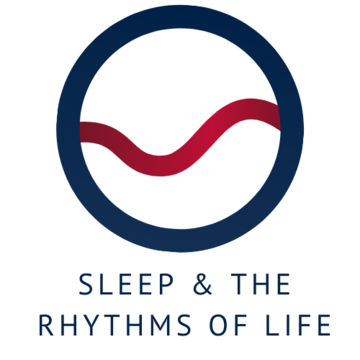Sleep and the Rhythms of Life

This network ran from 2022 to 2024.
In year three of the Covid-pandemic, we were are living at a historical conjunction in which social rhythms were altered and their effects on sleep come to the fore every day. The pandemic had exposed the extent to which sleep is entwined with social conditions - sleep is highly dynamic and very little about sleep is unchangeable. For example, changed social conditions over the past 100 years appear to have had a marked impact upon key elements of sleep. Recent studies on circadian rhythms and sleep, along with historical insights, have shown that such changed societal conditions have resulted in a detachment of these key biological rhythms from the geophysical cycle of light and dark, with major deleterious effects upon human functioning, wellbeing, and creativity.
Rhythmicity is not only at the heart of sleep and chronobiology, but is also fundamental to the humanities. This shared term thus generates the questions at the heart of the proposed multidisciplinary network:
- How has Western modernity made and unmade the nature of sleep?
- To what extent can the human body and mind be trained to adapt to different rhythms of life, and at what cost?
- Why is sleep so crucial to creativity and the production of art?
- What would be the impact of studying rhythmicity as a key term of interdisciplinary analysis?
"Sleep and the Rhythms of Life" opened a dialogue between the humanities and the sciences and will contribute to shared knowledge production. Building on previous work in the medical humanities at the University of Oxford, it aimed to bring together researchers with an interest in sleep across the academic divisions and developed an innovative exchange that transcends traditional disciplinary boundaries and illuminated the importance of sleep from a diverse set of perspectives.
The network was led by Dr Sebastian Klinger (Modern Languages), Professor Sally Shuttleworth (English), Professor Russell Foster (Sleep and Circadian Neuroscience Institute) and Dr Alessandra Aloisi (Medieval and Modern Languages).
Contact:
Professor Sally Shuttleworth - sally.shuttleworth@st-annes.ox.ac.uk
Convenors:
Collaborators:
Professor of Sleep Medicine
Medical Sciences Division
Professor of Endocrinology
Medical Sciences Division
Emeritus Professor of Psychiatry
Medical Sciences Division
Postdoctoral Research Scientist
Medical Sciences Division
Heather Professor of Music; Fellow of Wadham College
Faculty of Music
Professor of Sociology and Fellow of Linacre College
Department of Sociology
man-yee.kan@sociology.ox.ac.uk
Nuffield Professor of Sociology
Department of Sociology
melinda.mills@sociology.ox.ac.uk
Associate Professor
Medical Sciences Division
Associate Professor in French
Faculty of Medieval & Modern Languages
Somerville College
Professor of Circadian Neuroscience
Medical Sciences Division
Associate Professor in Circadian Biology
Nuffield Department of Clinical Neurosciences
Associate Professor in German and Fellow of Worcester College
Faculty of Medieval and Modern Languages
Professor of Cognitive Neuroscience and Tutorial Fellow of Wadham College
Experimental Psychology


